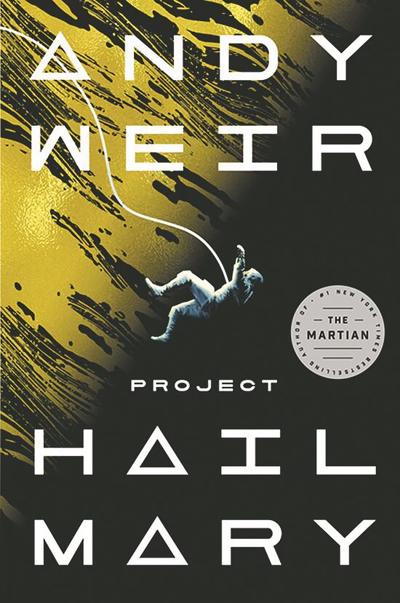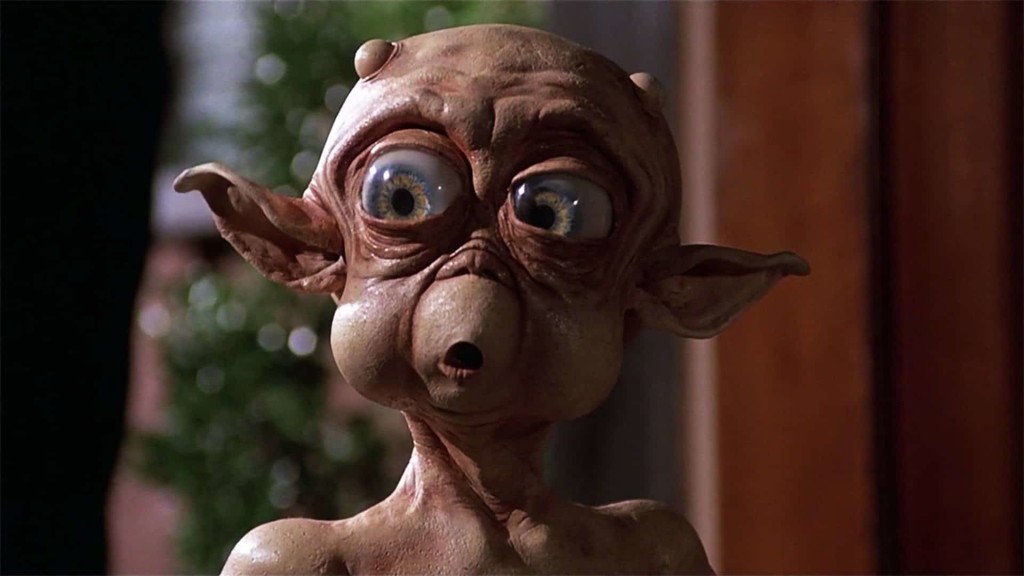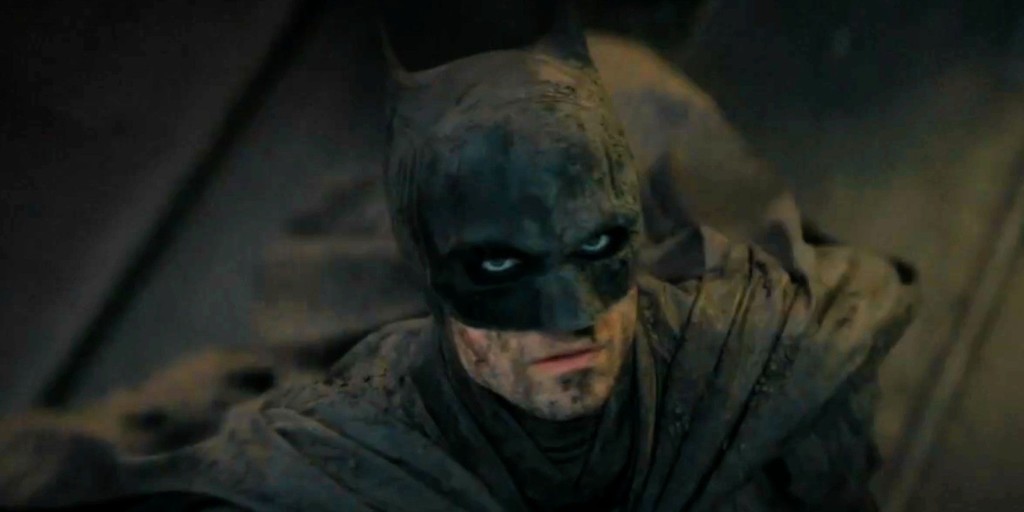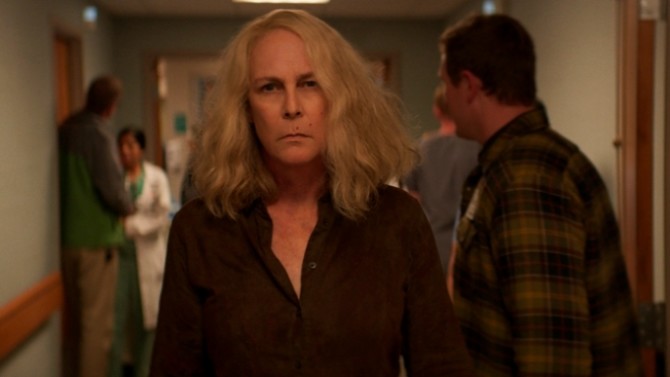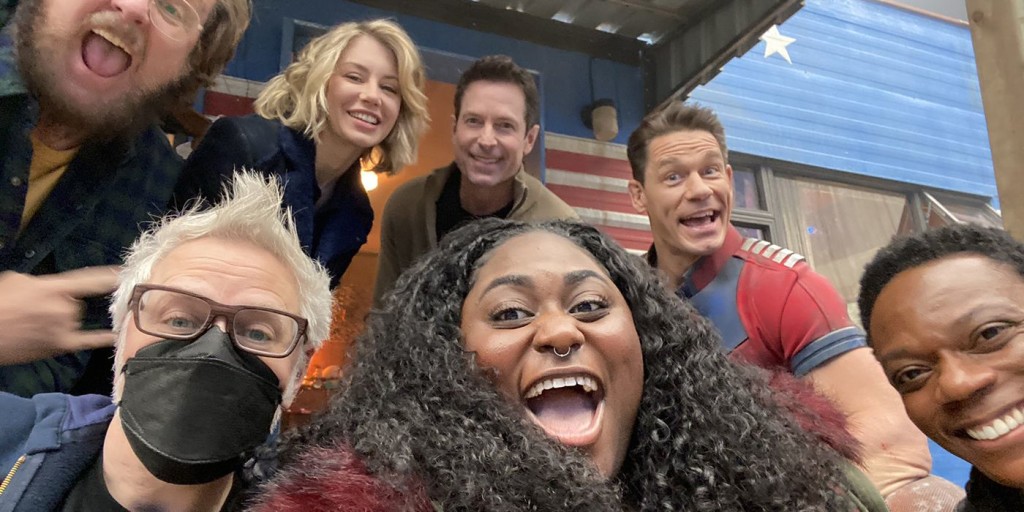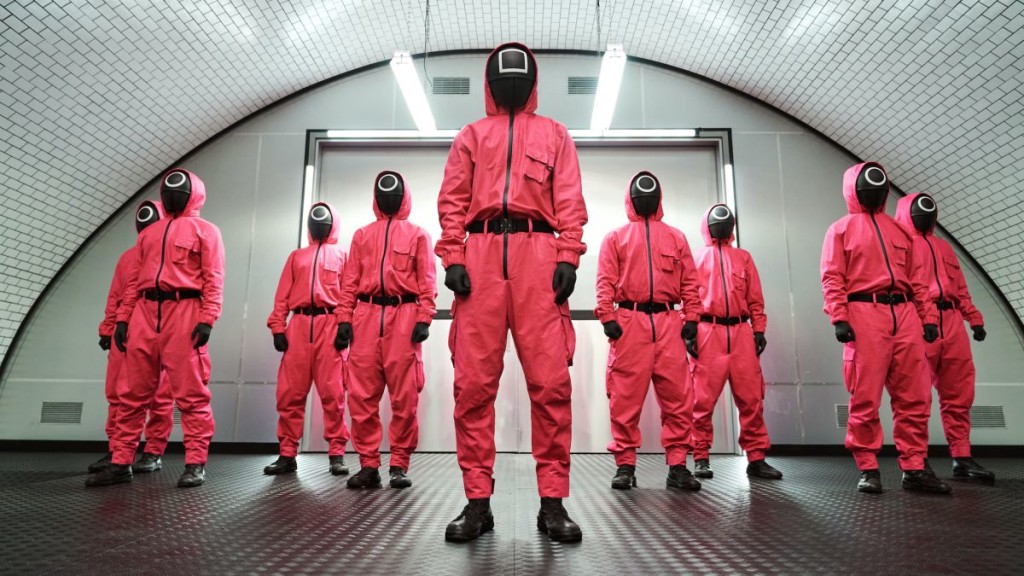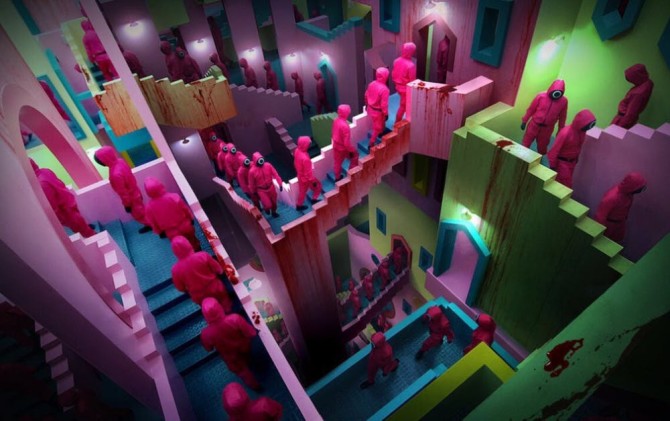Search Results for: F word
These horror submissions were shut out of Horror Showdown. Why?? Also, stay til the end because I announce the next SHOWDOWN!
I always say that running a contest is one of the worst things a person can do. You make one friend and 999 enemies.
And I get it. You see the entries that made Horror Showdown last month and you think, “My concept is better than those.” First off, you’re probably wrong. However, a few of you might, indeed, be right.
Therein lies the immeasurable conundrum of subjectivity. You might have a cool idea that I’m just not into. I’m not a fan of movies about magic, for example, like Harry Potter. I find them abracadumb. But, obviously, there are people who love Harry Potter and whom might anoint your magic concept the best idea they’ve ever seen.
Also, whoever’s running the contest is looking for a specific type of script. Nicholl celebrates high-minded fare where theme takes precedence over everything. The Black List is turning into a site that celebrates social commentary. For me, right now, I’m looking at concepts and asking, “Is this a movie I’d want to make?” If the answer is no, I don’t need to deliberate any further.
Both of those things – subjectivity and could this be a movie – are driving 95% of my choices. Just because your script didn’t win those two battles doesn’t mean it’s a bad idea. So don’t get down on yourself if you didn’t get picked.
With that said, there are concepts that are just straight up weak. And the purpose of today’s exercise is to help writers identify why a concept or logline doesn’t work and what you can do to improve your concepts moving forward. Let’s get to it!
Title: One Night in the White Mountains Under a Black Sun
Genre: Drama/Horror
Logline: In 1936 the lives of seven strangers violently collide when they become snowbound in an Italian hotel while one of them must stop a Nazi plot that would destroy the world.
Analysis: I wanted to get Felip’s entry in here because I could sense his audible frustration at not making the showdown (I love you, Felip!). This script actually finished in the top 15 because I thought the logline was intriguing. But the reason I passed on it had more to do with the Why You Should Read – “I just wanted to spin a decent yarn with Nazis and underground cults and black magic and werewolves and aliens.” Once I saw all that, I knew it was too much for me. There have been a few times in Scriptshadow history where I’ve liked “everything and the kitchen sink” scripts. But usually, I’m not into them. And once you have werewolves, Nazis, aliens, cults, and black magic? I just knew that wasn’t going to be for me. I tend to like simpler more direct concepts.
Title: THE PROJECTIONIST
Genre: Horror
Logline: A group of teens discover an old movie theater projector abandoned in a barn and inadvertently unleash a wave of horror after they switch it on.
Analysis: At first glance, this sounds like it could be a movie. But there’s one issue holding the logline back. We go from A to C instead of from A to B to C. We start with an old movie theater projector. Okay. There’s something a bit mysterious about that. However, how does switching it on unleash “a wave of horror?” Was the projector owned by someone dangerous? Maybe if there was a bit more information about WHY the projector unleashed this horror, I might’ve given this one a shot.
Title: Blood
Genre: Horror / action
Logline: A former combat medic, now providing rapid-response medical assistance for LA’s criminal underworld, takes on a trafficking gang harvesting teenagers’ organs for sale on the black market.
Analysis: I get the feeling that Ben tried to sneak an action script into the horror showdown here. So that’s the main reason I didn’t pick it. But I’m highlighting this concept to warn people off “organ trafficking” storylines. This is a 20 year old idea at this point. I know specifically how the town feels about organ trafficking because a couple of years ago I found a really good script about organ trafficking and I tried to pitch it to a bunch of people. Nobody would read the script the second they heard “organ trafficking.” it’s just a dead subject matter. If you’re going to do it, do it like they did it in Squid Game, where it’s a Z-story.
Title: Slaughterhouse
Genre: Horror
Logline: A documentary crew goes undercover to expose the horrors of factory farming, but things turn grisly when their project is discovered by a group of brutal farmers.
Analysis: This is a perfect example of how subjectivity plays into choosing scripts. I can’t stomach anything where animals get hurt. It just gets me thinking about all the animal harm going on in the world and I get really depressed. So this was a ‘no’ for me immediately. But from the writer’s e-mail, he pointed out that this script has gotten him a lot of meetings. So, obviously, other, less-sensitive people, have no issue with the subject matter. I just want you guys to see this so you don’t get too down about a rejection. There could be something in your idea that someone is simply sensitive to. I know people who won’t read anything about rape. Or abortion. There’s nothing you can do about that so there’s no reason to get down about it.
Title: The Malignant Shift
Genre: Psychological Thriller / Horror
Logline: One year ago, a fringe religious sect vanished into the wilderness of an undisclosed location. Today, a group of idealistic documentarians set out in search of them for the story of their lives. Tomorrow, they discover that some things are better left undisturbed.
Analysis: I wanted to highlight this entry for a specific reason. It contains a classic logline mistake that I see writers make over and over again. The logline starts off strong then dissolves into nothing. It amounts to, “Some documentarians set out to find a fringe religious sect who vanished into the wilderness a year ago… and then scary stuff probably happens.” The end of of a logline shouldn’t be a teaser. You want to tell us what happens. If the sect turned into cannibals, tell us that. If they were eaten by giant wolves that are now hunting our documentarians, tell us that. If the woods trap them until they starve to death, tell us that. The “exciting first half logline” that then becomes the “vague ending logline” is one of the biggest logline mistakes you can make. You gotta be specific about what happens.
Title: The Doppelgänger Suite
Genre: Horror
Logline: A paranormal team — headed by a grieving estranged married couple who’ve suffered a family tragedy — shoots their season finale at an accursed New Mexico hotel plagued by a century-long string of physically impossible suicides. Unless the married couple can reconcile and solve the mystery, they and their team will become the hotel’s next victims as their blackest secrets, desires and agonies take human form in a murderous game that must conclude by dawn.
Analysis: I passed on this one for one simple reason. Too long of a logline. I know everyone hates writing loglines. I used to hate them too. But being able to write a cohesive logline that quickly conveys the concept indicates to readers that this writer has been at the craft for a while, understands that writing loglines is a necessary evil, and knows what they’re doing. When I see a logline this long, 99.9999% of the time, the script is messy. Here’s the thing. Once you learn how to write a strong concise logline, you also learn how to be a concise storyteller. You’re more focused, both with your overall screenplay, as well as the scenes within your screenplay. Someone recently asked me how long a logline should be. There’s no universal number, but somewhere around 30 words is ideal.
Title: THE FUMIGATOR
Genre: Horror
Logline: A highly ritualized serial killer uses his fumigation services to isolate and torment a troubled family in their own home.
Analysis: Shout out to Brett for this entry. Always love to see Brett enter. Here’s my issue with this one. The concept borders on comedic. If you explain to me that someone would use those big house coverings to hide their killings, that does make sense. But those tents all look like something you’d see at a carnival. The title “The Fumigator” comes close to sounding like a horror parody. And, also, I couldn’t figure out how the killer’s plan worked. The families all have to leave the house while it’s being fumigated. So how could the killer trap them if they’re already gone? It was just one of those ideas that didn’t quite work for me.
Title: Monster Bait!
Genre: Horror Comedy
Logline: While on a family ski trip, a teen’s efforts to win over his girlfriend’s dad go horribly wrong when a curse makes it so that every time he masturbates – a monster kills the object of his lust.
Analysis: Okay, “Monster Bait” is a funny title. But when it comes to horror comedy, my bar is higher than the elevation your last flight flew at. A horror comedy idea has to be absolutely amazing for me to bite. And this one didn’t make a lot of sense to me. I thought a curse just makes things happen. I wasn’t clear why a monster needed to appear (for example, when I think of a curse, I think of Tom Hanks in “Big.” He becomes an adult. That’s the curse. There aren’t also demons flying around trying to kill Tom Hanks). There’s a logic-chain to these concepts that needs to be clean and this one was too messy for me.
Title: The Slaying at Rustic River
Genre: Slasher Flick
Logline: Five college friends vacation at a remote cabin in the woods, however, they soon find themselves hunted by a killer whose motives are fueled by an unspeakable event linked to the group’s past.
Analysis: Another classic example of a logline not giving us enough information. It’s being vague. Loglines must be SPECIFIC. It is the SPECIFIC that intrigues the reader, not the GENERIC. Here’s the key problem phrase of the logline – “are fueled by an unspeakable event linked to the group’s past.” TELL US THE EVENT. Don’t talk around it. The event from the past is the hook. Without it, what’s unique about this concept?
I wish I could’ve gone through all of the entires but I only have so many hours in the day! So what do you think?! Should any of these have made the Horror Showdown? Who should’ve gotten in? Who should’ve been pushed out?
***ANNOUNCEMENT***
Finally, the official announcement of the next showdown will be in the newsletter. But here’s the unofficial announcement. The next Showdown is titled ANYTHING GOES SHOWDOWN. That means any script, any genre, any concept – it’ll be open to every script. We’re going to fold “WEIRD SCRIPT SHOWDOWN” into ANYTHING GOES SHOWDOWN. And I am going to be paying special attention to those weirder ideas. One or two of those will definitely make the showdown. So you did not write those scripts in vain. The deadline is FEBRUARY 3RD. So you have exactly three months to get your scripts in shape. GOOD LUCK!
Sorry to say but there will not be a Scriptshadow post today (Tuesday). However, there is a big fat 6000 word newsletter in your inbox. You know how shocked everyone is that Squid Game was rejected for 10 years? Well in this newsletter, I discuss a project that took 30 YEARS to get made. I also talk about the season premiere of the amazingly written Succession. I give you a Kinetic update. I discuss the latest scripts to hit the market in October. I give you a sneaky good show no one knows about on Apple TV. I analyze all the latest trailers. And, finally, I review a really heartfelt feel-good holiday script.
If you want to read my newsletter, you have to sign up. So if you’re not on the mailing list, e-mail me at carsonreeves1@gmail.com with the subject line, “NEWSLETTER!” and I’ll send it to you.
p.s. For those of you who keep signing up but don’t receive the newsletter, try sending me another e-mail address. E-mailing programs are notoriously quirky and there may be several reasons why your e-mail address/server is rejecting the newsletter. One of which is your server is bad and needs to be spanked.
The writer of The Martian attempts to remake Interstellar… with an E.T. Twist!
Genre: Sci-Fi
Premise: A science teacher is chosen for a deep space mission that will save the earth from a virus that is slowly darkening the sun.
About: Andy Weir, who’s responsible for one of the biggest self-publishing success stories ever – The Martian – is back in his wheelhouse with his third book, which currently has a staggering 37,000 reviews on Amazon. The movie adaptation will star Ryan Gosling and be directed by Phil Lord and Christopher Miller. Drew Goddard, who adapted The Martian, will adapt this one as well.
Writer: Andy Weir
Details: 482 pages
From what I understand, Project Hail Mary was originally conceived as a space opera, like Star Wars. However, after writing 75,000 words of this space opera and thinking it was terrible, Weir abandoned the novel and went off to write Artemis instead (his second book). But he couldn’t get some of the ideas from Project Hail Mary out of his head so he went back and repurposed the story to be more like… well, the book that made him famous: The Martian. Let’s see what the results were.
Ryland Grace wakes up in a windowless techy white room. He has no idea how he got here. But he does notice there are two other people in the room with him and they’re both dead. He senses he was part of some sort of crew which means that he must be in space. Why is he in space? He doesn’t know that yet.
He starts exploring the multi-module ship and finds a science lab. He’s supposed to work on something scientific. But what? The book is set up to jump back in time as Ryland remembers the pieces of his past, which come sparingly. The first thing he remembers is that the scientists of the world realized that the sun was getting darker. And if this continued, in about 30 years, humanity would be extinct.
Uh oh.
Back on the ship, Ryland starts doing experiments and realizes that the stuff that’s darkening the sun is called astrophage. And boy is this stuff nasty. Because it’s not just darkening our sun. It’s darkening all of the nearby suns in our galaxy. That’s when Ryland realizes that he’s not in his solar system, he’s in a completely different solar system called Tau Ceti. He’s been sent here because Tau Ceti is the only star that isn’t darkening. And his team – aka, him – needs to figure out what it’s doing right.
While Ryland is trying to figure out how to conduct experiments on local astrophage, he sees another ship! But this isn’t Star Trek where you just call them up on your space Skype. This is an Andy Weir novel. Everything is realistic. There are no phones. So these two ships have to figure out how to communicate some other way.
After a long drawn out process, the other ship docs to his and Ryland meets the sole occupant of the other ship, a spider alien he names “Rocky.” Several long chapters are dedicated to the two species learning each others’ languages (again, this is an Andy Weir novel where everything is dealt with realistically) and Ryland learns that Rocky is here for the exact same reason he is. His planet discovered the same thing, that Tau Ceti is the only solar system that isn’t affected by astrophage.
(Spoilers) Long story short, astrophage was created here. And because it was created here, it has a natural predator that can kill it. Which means all these two have to do is pack up some of these predator particles and head back to their respective homes. However, when something goes wrong at the last second, Ryland will be tasked with either going home to save mankind or going back and saving his new friend.
One of the things I’m a big proponent of is figuring out what you bring to the table that nobody else does and then writing scripts that lean into that strength. Think about it. Why would we show up to see something that feels exactly like everything else we’ve seen? We seek out material, in written and produced form, that has a distinctive voice.
Weir’s voice is science. Literally NOBODY else is doing what he’s doing. Let me repeat that because it’s important. NOBODY ELSE IS DOING WHAT HE’S DOING. If you’re the only one who’s doing something, you are a commodity. The studios can’t go to JJ Abrams or Quentin Tarantino and say, “I want a movie like The Martian that is steeped in hardcore science.” They wouldn’t be able to do it. They can only go to Andy Weir.
So now I ask you – what can studios only get from you as a writer? What is your unique commodity?
But Weir’s talents don’t stop there. If he only gave you science, you’d be bored out of your mind. He’s created a unique ability to package science in a fun easy-to-read way. Part of it is that he knows he has to move the story along so he never dwells for too long on anything before jumping to the next plot beat. But, also, he has an insane love for science, which comes off in the way he writes.
That’s worth something, by the way. Readers can feel when a writer is passionate about what they’re writing. It often adds an extra level of energy to the story.
That doesn’t mean Weir doesn’t have weaknesses. He does. Project Hail Mary has a huge weakness. Weir wants to write a thriller. He wants to keep the pages moving. But he also has to explain all this backstory so you know why he’s doing this. And writing a thriller in first person with extensive backstory doesn’t make sense.
So Weir cheats. He creates this amnesia storyline whereby Ryland only remembers the past bit by bit, and each time he remembers, we cut back to the past to get that new piece of information. Conveniently, these pieces of the past come to him in perfect linear order, allowing him to tell a perfectly linear story from the past as he intercuts to the perfectly linear present.
It’s a sloppy device and it almost derails the story. I mean here’s a guy who can spend ten pages on the importance of why a door corner must be measured by the Pythagorean Theorem in space lest the entire ship blow up, yet the rules of amnesia just happen to align perfectly to the extent that each bit of remembered past matches up perfectly with the story’s structure.
I think the big question coming out of Hail Mary is, can this be adapted into a movie as good as The Martian? And the answer is I honestly have no idea. I suspected, after reading The Martian, that we’d be bored hanging out with Matt Damon in a single room through that entire second act but I was wrong. So I’m not going to write Project Mary off.
But the make or break part of Hail Mary is, without a doubt, going to be Rocky. It isn’t just creating Rocky that’s going to be difficult. It’ll be the tone. Because he kind of sounds like a slightly smarter version of E.T. But the focus here on genuine science would imply that they’d want Rocky to feel more realistic. And yet, the way he’s written, he’s like a spider-dog that communicates through singing. I’m just not sure how you make that work onscreen.
I’m getting some Jar-Jar Binks vibes – or, gasp, Mac and Me – where he could inadvertently come off as comical. If he works, the movie will work. If he doesn’t, Ryan Gosling is going to be memed to death for the rest of his life. I would go so far as to guess that they’re going to change this alien to something more human. I just don’t know how you make a spider dog with no eyes that sings work.
All in all, Project Hail Mary is a fun book. It reads like a movie. It’s got a lot of fun little twists and turns along the way. If you liked The Martian, I see no way you wouldn’t like this too. It does have some weaknesses but they never overwhelm its strengths.
[ ] What the hell did I just read?
[ ] wasn’t for me
[x] worth the read
[ ] impressive
[ ] genius
What I learned: I hear a lot of writers share stories similar to Weir’s experience on Project Hail Mary, where they start off writing something and, once they get deep into it, realize it sucks. When that happens, it can be very difficult for the writer to give up because now they have the sunk cost fallacy in play: You’ve already written so much of the story. Therefore, even if it sucks, you should still finish it. However, I think the better option is to do what Weir did. Understand that just because a novel or a script isn’t working, that doesn’t mean giving up on it now means giving up on it forever. What often happens when we get some distance from our failed stories is that we realize there are still some kernels in them that could be used to create a different better story. We can then extract those kernels and write a book like Project Hail Mary, which was pretty darn good. That’s a better option than spending years trying to make something work that’s inherently flawed.
The Batman, Halloween Kills, The Last Duel, and Peacemaker all come splashing down into the Mish-Mash Monday pool today!
People! This Thursday is the Halloween Horror Showdown deadline. If you have a horror script, make sure to enter it. It’s absolutely free and you can find out how to submit HERE. The winner will get a big Friday review next week. Don’t you dare miss out on this opportunity.
We had two major releases this weekend at the box office. The first was the Halloween sequel, Halloween Kills. That film finished with a surprising 50 million dollars at the box office, despite being available for free on the Peacock streaming service.
There’s been a lot of talk in the industry about how “simul-releases” doom a film’s box office, with the industry pointing to the simul-release of hopeful hit but ultimate dud, “The Suicide Squad” as an example. Meanwhile, movies like Shang-Chi and Venom, which only opened in theaters, do well. Throwing a wrench into that theory is that last week’s opening of Bond, which was a theaters-only release, did poorly.
The newest Halloween movie further throws that theory into flux, pulling in 50 million bucks for the weekend, which was only 5 million less than No Time To Die. To put that in perspective, “Die” cost 300 million to produce while “Kills” cost 20 million. Of course, Halloween Kills will not do anything close to No Time To Die’s international numbers. But it may actually end up turning a bigger profit than Bond, which reportedly needs to hit 800 million in revenue before it starts making money. And that’s a generous number. More realistically, it’s probably a billion.
Another layer to this drama is that Halloween Kills has a dreadfully awful screenplay. And I mean it’s REALLY bad. In retrospect, I probably should’ve given it a “what the hell did I just read?” Most people are confirming this as the film has a fast plummeting 39% Rotten Tomatoes score. But one of the most surefire bets at the box office is the direct sequel to a highly successful horror movie. And, look, it’s a movie called “Halloween Kills” coming out two weeks before Halloween. So people are going to go. I just hate when terrible screenplays are celebrated because it encourages the industry to remain lazy.
The other big release was Ridley Scott’s star-studded period piece, The Last Duel, which maybe should’ve been called The Last Time You’ll Ever See This In Theaters. There were a couple of issues with the project, the first being that period pieces haven’t done well recently, especially when the concept is small, like this one. Period pieces need that big hooky world to hang their hat on (Scott’s “Gladiator,” for example) and The Last Duel was a more personal story.
The bigger problem, though, was that the movie looked sad. And who wants to willingly be sad during a pandemic? It’s like, “Hey, Hollywood! I’m already sad! I don’t need you to make it worse.” I believe that when things are going badly in the world, people want happy movies (Shang-Chi). And when things are going well in the world, people are more open to sad movies (Titanic). The Last Duel was a big fat example of bad timing. I also think Adam Driver needs a new agent. He seems to be choosing projects solely based on the director without asking the obvious question of, “Is this a movie people actually want to see?” An actor of his caliber should not be in this many films that have bombed.
Two new big trailers hit the airwaves this weekend thanks to the DC Expo, the big one, of course, being The Batman. This movie looks DARK. And no, I’m not talking about the tone. I’m talking about the cinematography! I can barely see anything. I will say this about the movie. Batman is probably the trickiest property in Hollywood to direct at the moment because you’re coming off the most successful Batman films ever, which means you can’t copy them. However, if you go the opposite route and try to make Batman fun and playful, you look like you’re copying the Marvel format. So what do you do?
Matt Reeves’ solution was to one-down Christopher Nolan. Let’s not just go dark. Let’s go REALLY DARK. Based on how this movie looks, I’d say that was the right decision because the movie doesn’t look like anything else out there. That’s the hardest thing to do in the most over-saturated genre in history – come up with a film that doesn’t look like any other superhero film out there. Matt Reeves has done that.
The only thing I remain skeptical about is Robert Pattinson. It makes me nervous that he barely says anything in the trailer. And when he does say something, it’s usually voice over. That indicates that the director doesn’t love his star’s performance and he’s trying to hide it. I noticed the same thing in Tenet. Pattinson has very few lines in that movie and you get the sense that he, originally, had a much bigger role, which indicates that a large swath of his performance was left on the cutting room floor.
Then again, I may be overthinking this. The trailer could’ve easily been cut that way on purpose. And, look, I’m seeing more good in this trailer than bad. It looks like a cool Batman movie. The biggest thing of all is that it feels fresh. That’s all audiences want. They want something familiar but not too familiar. I really hope this is a good movie!
DC’s other big trailer release was James Gunn’s and John Cena’s “Peacemaker” show for HBO Max. This was quite the, um, trailer. I’m trying to think of a way to be respectful here because I like John Cena a lot. Let’s put it this way. James Gunn is an acquired taste. I think we all know that by now. And I would call this Peacemaker show the most James Gunny thing ever made. So if you love James Gunn, you’re going to love Peacemaker. If you’re like me, however, and approach every James Gunn project on the fence, willing to go one way or the other depending on the execution, you’re probably going to hate this. It just looks… juvenile is the best word to describe it.
It doesn’t help that nobody saw The Suicide Squad. They were expecting that film to be a big hit and for Peacemaker to be a breakout character. But that’s not what happened. You could make the argument that not a single character broke out from that movie. But, by that point, this show was already in the can so what can they do other than promote it like heck and pretend that everybody loved the film?
Next weekend we FINALLY get Dune. This will be a pivotal release for Denis Villeneuve. His big-budget Blade Runner film proved too “adult” for audiences and Dune looks to have gone down a similar path. They did a good job hedging their bets, however, with Chalamat and Zendaya, to pull in the younger crowd. But will that crowd be willing to sit through a 3 hour meditative piece on interplanetary politics? Boy oh boy am I curious to find out.
Now finish up those horror scripts and get them in by Thursday! No more procrastinating!
The story behind Squid Game is almost as compelling as the story in it.
Squid Game is a sensation.
Ted Sarandos, Netflix’s content guy, says that the show is on track to become the most watched piece of entertainment in Netflix’s history.
Full disclosure, I watched the first episode and a half of Squid Game and I didn’t think it was very good. Korean cinema can be kind of goofy, in my opinion, which can sometimes take me out of the story.
There was an early scene, for example, where a business man plays a weird game with our protagonist where he drops an envelope on the floor and if it doesn’t land just right, the other guy gets to hit him. The protagonist proceeds to lose 60 times in a row and the other guy just keeps hitting him afterwards. Quite frankly, I thought it was one of the dumbest scenes I’d ever seen. It yanked me right out of the show and I couldn’t get back into it.
There were some other issues I had as well. Why do the people get to vote to stop the game? That’s lame. It’s so much better if they’re forced to play it. I gave up watching after the people were allowed to quit.
BUT. That does not change the fact that Squid Game is a runaway success. I’ve seen several of you praising it in the comments. And the internet loves it (I recently read that the squid game hash tag has been shared 22 billion times on TikTok, which I guess means everyone in the world has used the hashtag 3 times each). I texted my brother (who has zero interest in Hollywood) to see what he thought and he said, “I haven’t seen it but the world is screaming at me to watch this, so I will.” And that’s the current pull of the show. Everybody knows about it. Everybody is going to check it out if they haven’t already.
But, as was brought to the world’s attention this week, the creator, Hwang Dong-Hyuk, has been pitching the show to Hollywood for ten years and they all told him it wouldn’t work. He was so broke at one point, he had to sell the very laptop he was writing the script on!
So what happened here? Writers love a good “the studios were wrong!” story. But were they wrong? Was this a guaranteed hit that the studios missed?
Let’s dig into that question.
One of the things I’ve found is that if you’re an unknown writer and you have a really unique vision – your story is going to look different than anything else out there – it’s hard to convey that on the page. I remember when Zach Braff was trying to get Garden State made and nobody gave him the time of day because the script was so bad. However, after he made a strong visually unique film, everybody was surprised as to how Garden State could’ve been rejected. Well, it was rejected because there was no way to show everyone what the movie would look like using just words.
Which is clearly what’s happened here. Squid Game is all about the look. The dudes with the weird masks and these ridiculous colorful game sets – the second you see that on Netflix’s home page, you’re intrigued. And if you’re intrigued, you’re going to check it out.
But let’s not pretend like it an obvious hit and everyone who passed on it was dumb. There wasn’t any way to know the show was going to look the way it does. If this had been a graphic novel first, I have no doubt that it would’ve been optioned and made into a movie (or a show). But if he was just pitching this as a script, of course people are going to say no. It’s big, it’s expensive, it’s weird, and the writer is unknown. That’s like a quadro handicap on your screenplay.
The reason I bring this up is because, if you’re a writer trying to break in, having some groundbreaking visual palette for your movie isn’t going to matter one iota in script form. That’s for the directing side of things. It’s why directors will shoot short films as proof-of-concept. But nobody’s going to be able to see that in a screenplay.
Which is why you should be conceiving of ideas that work first ON THE PAGE and then ON THE SCREEN. Not ideas that jump straight to the “on the screen” part. That’s a little confusing so let me parse it out for you. A Quiet Place is a script that works on the page. It’s got clear high-concept rules (you can’t make a sound or you’re dead) and a highly marketable story (horror film, monsters that hunt you, family that’s trying to survive). Cloud Atlas is a script that does not work on the page. You could argue it doesn’t work on screen either. But it definitely looks beautiful. And that’s the lesson here. If your script is highly dependent on how it looks, you shouldn’t be writing that as an unknown screenwriter. Nobody’s going to be able to see what you see (unless you’re a writer-director and shoot a proof-of-concept short).
Where we venture into the gray zone is when we look at Squid Game’s concept. Squid Game has a very high concept pitch. It’s a bunch of poor people playing deadly children’s games to win millions of dollars. Shades of The Running Man and The Hunger Games. To be clear, that *does* work on the page. So I’m not sure why that didn’t sway Hollywood more than it did other than maybe the writer was originally pitching Squid Game as a movie and it didn’t read well as a feature, combined with the fact that he was an unknown, which always makes things more difficult.
Let’s also not forget that, as is the case with every giant hit, there’s a fortuitous aspect to it. Steven Spielberg is Steven Spielberg in large part because when he came out with Jaws, the world was experiencing an overwhelming number of shark attacks. When Hwang Dong-Hyuk first pitched Squid Game ten years ago, we weren’t in the middle of a pandemic that was taxing everyone’s bank accounts. The second the pandemic came along and everyone started losing their jobs, Netflix greenlit Squid Game.
There are a few final writing lessons I can take away from Squid Game. The first is that screenwriting is a marathon. It isn’t a sprint. I can count the number of people who have “made it” within five years of starting screenwriting on two hands. And, in almost all of those cases, it was because that person had a family member in the business. Ten years, as scary as that sounds, is a realistic number when it comes to screenwriting success. That doesn’t mean you have to starve for ten years. You can have a job and pursue screenwriting in the meantime. But try to put 2-3 hours a day into it if you really want to get good.
Next up, high concept remains your best bet for success. Some people may look at Squid Game and say, “Wow, Hollywood is effed up. They rejected this awesome show for ten years.” But another way to look at it is, kudos to Dong-Hyuk for coming up with such a high concept that it could be pitched long enough whereby it never got old. A lot of writers come up with ‘of-the-moment’ ideas and, as soon as the moment is over, their scripts are worthless. A big high concept timeless idea is something you can pitch for years no matter how many times you get rejected.
Finally, write about what’s affecting you RIGHT NOW. That tends to create the most authentic exploration of character. Dong-Hyuk was dirt poor ten years ago. He was just trying to survive. So he came up with an idea that explored the depths a person would go to to become financially stable. I don’t think Dong-Hyuk would be able to write Squid Game today. He’s rich now. He doesn’t feel that same desperation. That same destitution. As much as I love concept, you ultimately have to write characters that the average person connects with. And this is a big part of the equation for doing that. Write characters that are versions of you and what you’re going through right now in your life.
I’m curious what conclusions you’ve drawn from Squid Game’s success. While you write out those comments, maybe, just maybe, I’ll give this show a second chance. :)



